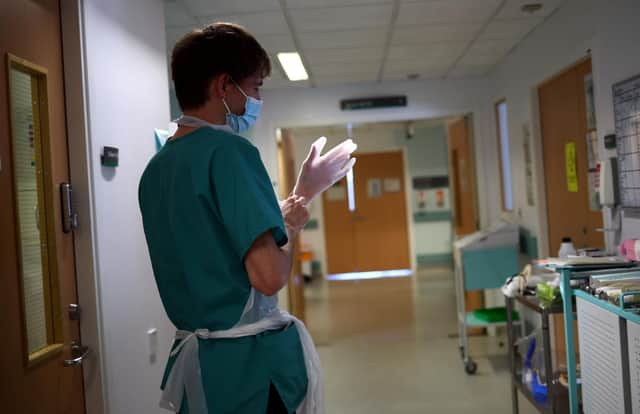Against all the Covid odds, the next generation of junior doctors are on their way - Callum George


It is a day we’ve all been working towards since embarking on Scotland’s first accelerated medical degree programme for existing graduates in the autumn of 2018. I doubt there was a single one of us back then who expected it to be an easy journey. Medicine is infamously heavy-going on its students as it is, without the compression of two academic years into one.
As for a global pandemic suddenly causing medical education to grind to a complete halt (albeit temporarily) sixteen months ago? Should have seen it coming. After all, it’s as Sir William Osler said: medicine is a science of uncertainty and an art of probability. The way I understand it, it’s all about knowing what you know and carefully managing what you don’t and won’t ever know.
Advertisement
Hide AdAdvertisement
Hide AdFor us, Covid-19 meant an abrupt and premature end to the face-to-face delivery of our second year of medical education. There was a lot of uncertainty everywhere back then, but we all knew we’d probably still be pulling on those scrubs and getting to work on time in August 2022. If there’s one thing that can’t and shouldn’t ever let a global health emergency get in its way, it is the training of the next generation of those working in healthcare.
Our course staff and organisers did everything in their power to get us back on the wagon as soon as possible, in the context of the restrictions everyone was by then all too familiar with. Hands-on, real-life learning experiences with patients and clinicians became virtual stop-gaps. Some teaching was delayed by months; the rest we will finally get an opportunity to pick up during our next and final year. Exams were reworked so that we could sit them online from home.
After the summer, my cohort were sent far and wide for our third-year placements: year-long, apprenticeship-style, embedded into general practices across Scotland. The changes that the pandemic had brought to healthcare were laid bare for us; our world became clad in PPE and while normal life, death and illness continued, everything was being looked at through the Covid-19 lens.
We felt the variations in practice, with some students stifled by their host’s ability to educate given the virus. Others, like myself based in Campbeltown, were lucky enough to be in practices that were able to take me in their stride while constantly adapting to the ever-changing circumstances, ensuring I learned all that I could.
I’m now at the end of a year when I had the privilege to meet and learn from the very best of people, healthcare staff, clinicians and patients alike, despite the ongoing pandemic. My colleagues and I have sat our final exams (in a more traditional, closed-book setting) and look forward to rounding off our time as medical students before finally joining a profession that I hope, after the last sixteen months especially, will be looking forward to having us.
- Callum George is deputy chair of the BMA’s Scottish Medical Students Committee, and ScotGEM student at the University of St Andrews.
